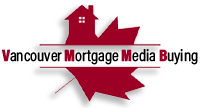To a person untrained in the art of real estate, the mortgage financing process can seem incredibly complicated. Although mortgages are difficult to fully understand, by educating yourself on the best mortgage practices you can learn everything you need to know to get a good deal on your mortgage. This article is filled with great mortgage information, so read on to learn more.
Beware of low interest rate loans that have a balloon payment at the end. These loans generally have lower interest rates and payments; however, a large amount is due at the end of the loan. This loan may seem like a great idea; however, most people cannot afford the balloon payment and default on their loans.
Only borrow the money you need. The amount of loan you qualify on is based solely on your gross salary. Have an overall picture of your financial situation, and what you know will be affordable going forward.
Get your documents together before approaching a lender. In the event that you arrive without sufficient documentation of your current earnings and other relevant information, you may quickly be dismissed, and asked to return when you do have everything in hand. The lender will want to see all of this material, so having it handy can save you another trip to the bank.
Having the correct documentation is important before applying for a home mortgage. Before speaking to a lender, you’ll want to have bank statements, income tax returns and W-2s, and at least your last two paycheck stubs. If you can, prepare these documents in electronic format for easy and quick transmission to the lender.
Obtain a credit report. It is important to understand your credit rating before you begin any financial undertaking. Order reports from all 3 of the major credit reporting agencies. Compare them and look for any erroneous information that may appear. Once you have a good understanding of your ratings, you will know what to expect from lenders .
Learn the property tax history of the home you are planning on buying. Prior to agreeing to a mortgage, you must understand your likely property tax bill. Your property may be valued higher by the tax assessor, which could lead to you paying more for taxes.
There are many different types of home mortgage loans available, and some are much easier to get than others. If you are having a problem getting a conventional loan, try applying for an adjustable rate mortgage or a balloon. These are short term loans ranging from one to 10 years, and need to be converted when they expire.
Look closely at lenders. There are many companies willing to lend you money to finance your home. They are not all equal. Look into the reputation of the lender and try to talk to people who have their loans through them. Reputations are hard to hide, and you will want to know how your potential lender handles business.
Save up enough so you can make a substantial down payment on your new home. Although it may sound strange to pay more than the minimum required amount for the down payment, it is a financially responsible decision. You are paying a lot more than the asking price for the home with a mortgage, so any amount that you pay ahead of time reduces the total cost.
Prior to buying a home, close some of your credit cards. Too many credit cards make you seem irresponsible, even if you don’t have too much debt on them. You will get better rates on your mortgage if you have a small number of credit cards.
Research all the expenses associated with buying a home and ask your lender if you don’t understand something. There are quite a few fees you will be required to pay when you close on a home loan. The process can be very intimidating. However, with the proper legwork, you can both talk the talk and walk the walk.
Ensure that your mortgage does not have any prepayment penalties associated with it. A prepayment penalty is a charge that is incurred when you pay off a mortgage early. By avoiding these fees, you can save yourself thousands. Most of today’s loans do not have prepayment penalties; however, some still do exist.
Keep on top of your mortgage application by checking in with your loan manager at least once per week. It only takes one missing piece of paperwork to delay your approval and closing. There may also be last minute requests for more information that need to be provided. Don’t assume everything is fine if you don’t hear from your lender.
As was stated in the introductory paragraph of this article, the mortgage financing process is very complicated. It can seem indecipherable to a real estate novice. The key to financing a great mortgage that allows you to buy the home of your dreams is to educate yourself on the mortgage process. Study the mortgage tips and advice in this article very carefully.







